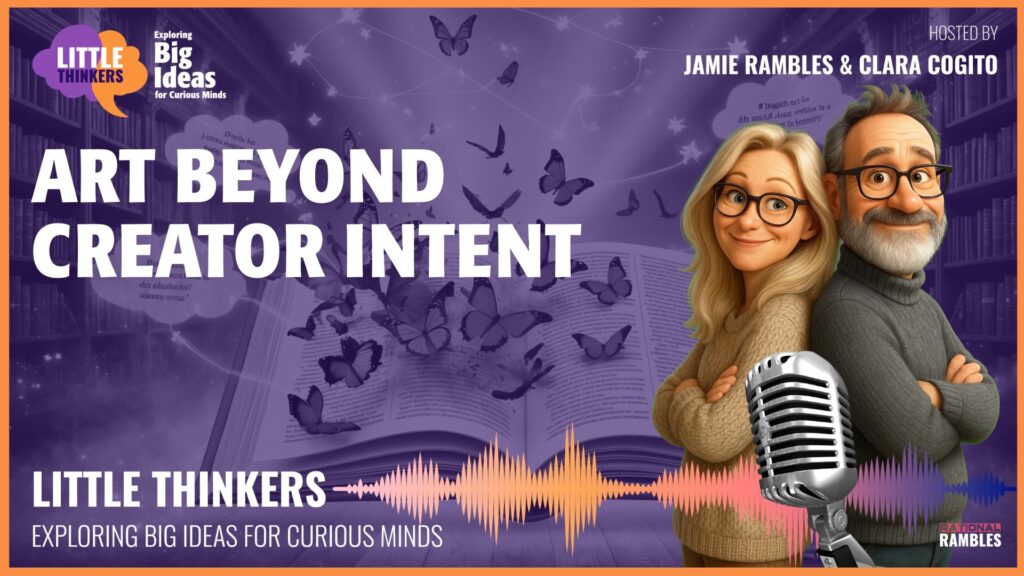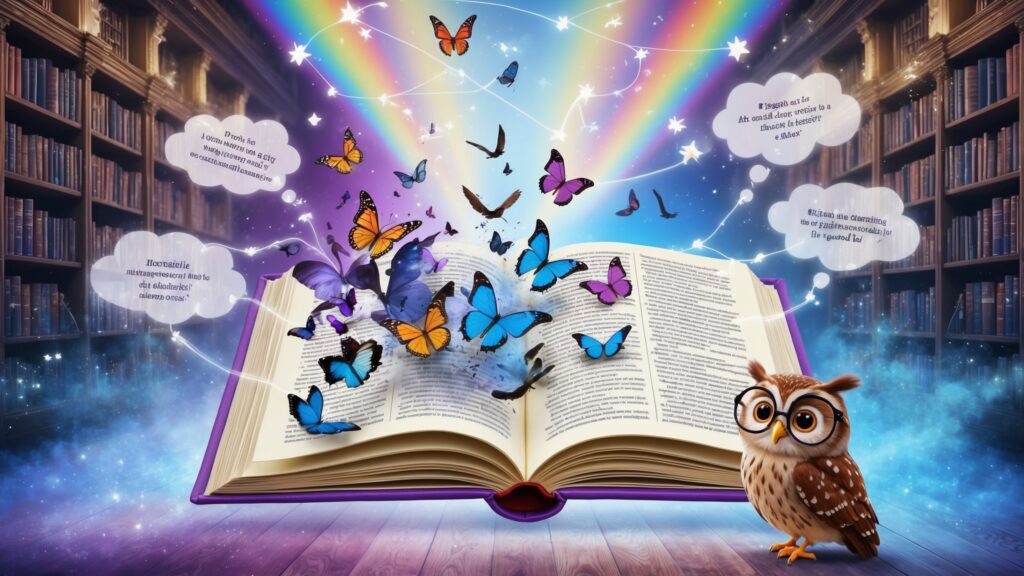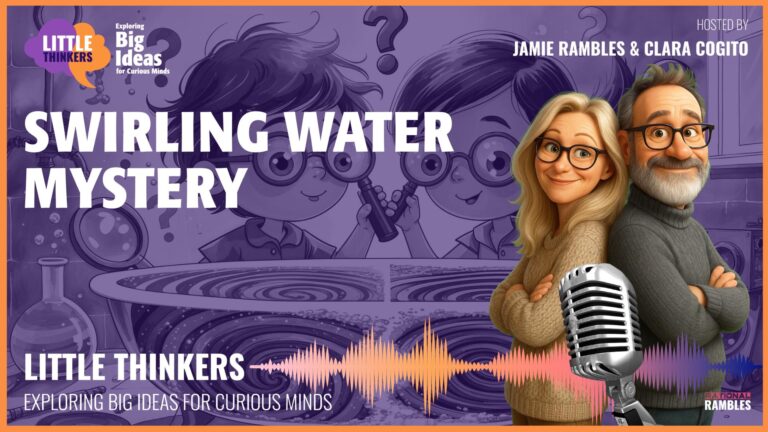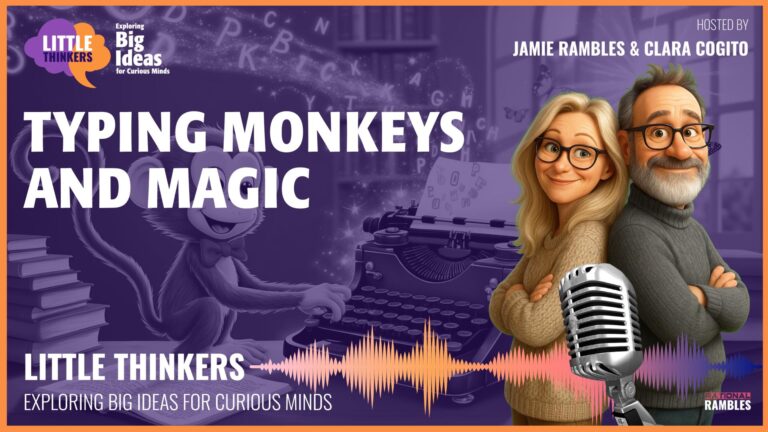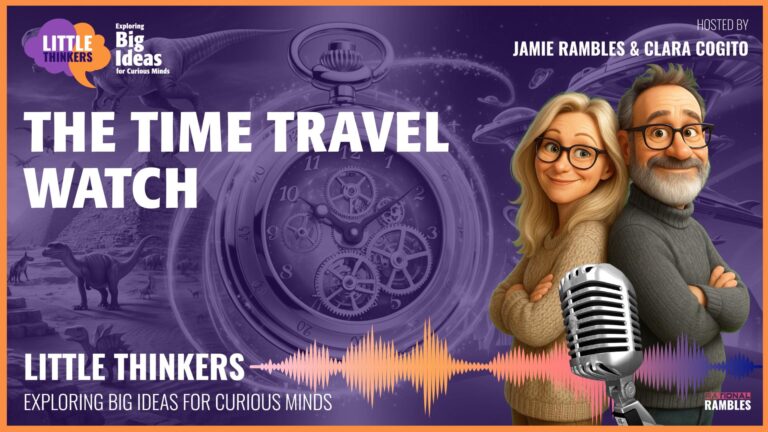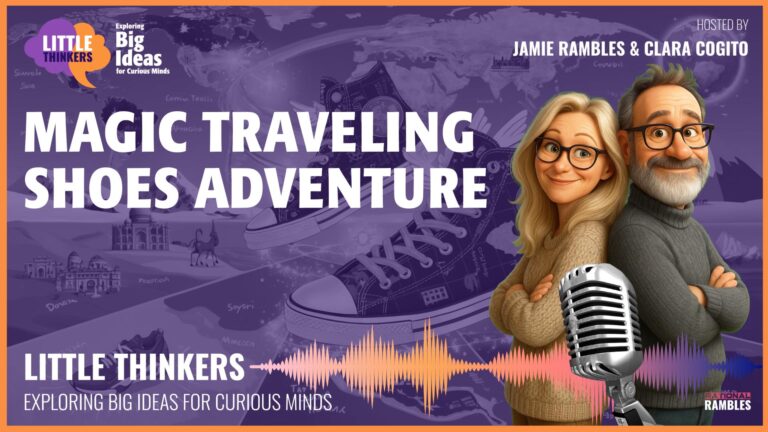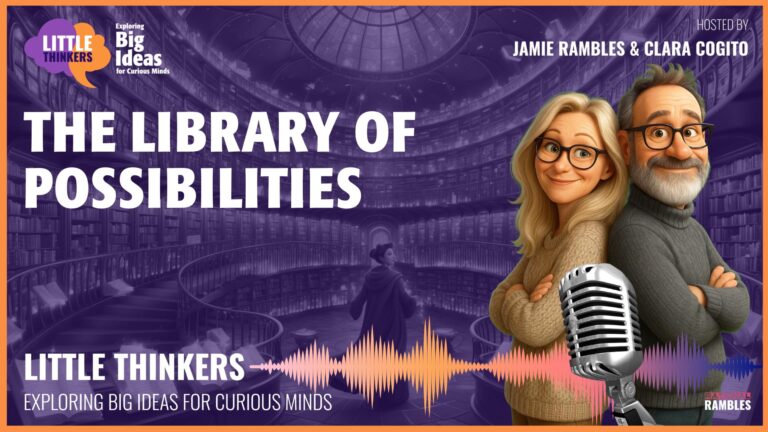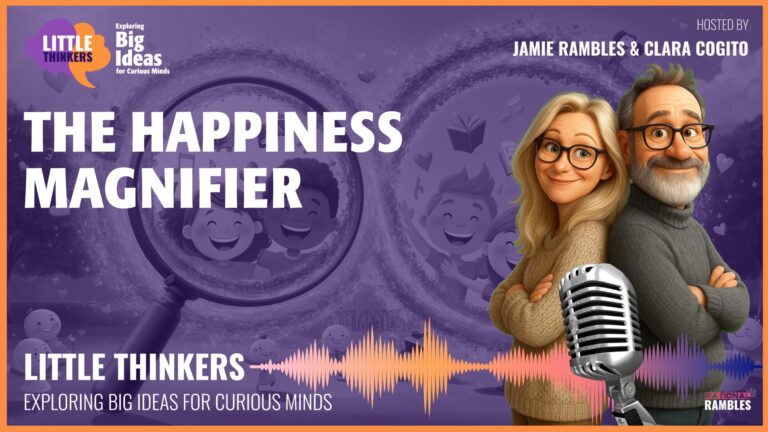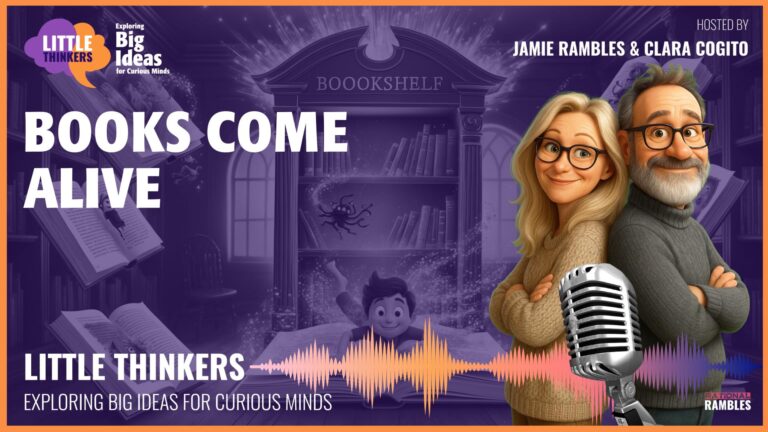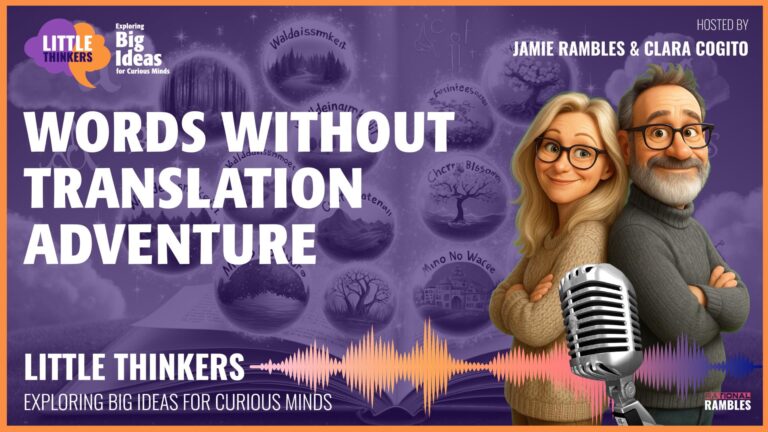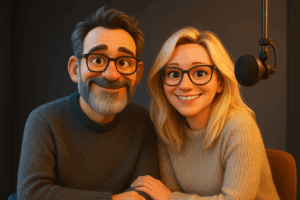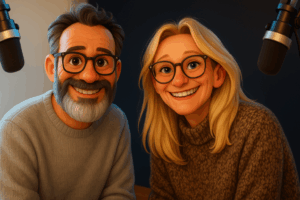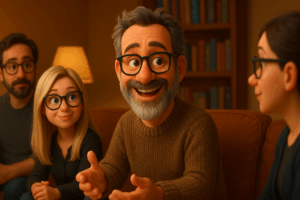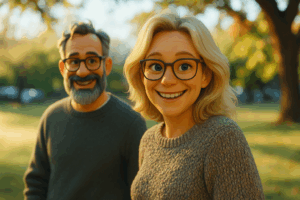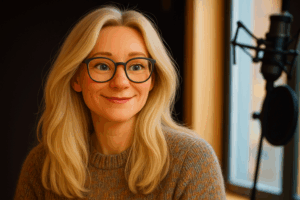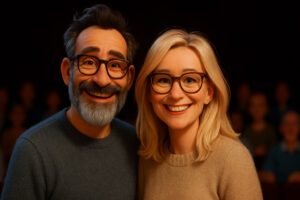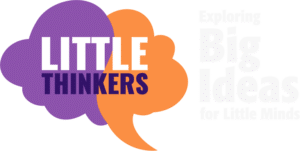What Do Stories Really Mean? The Magic of Finding Your Own Meaning!
Have you ever found a secret message just for you?
Have you ever read a story that felt like it was speaking directly to YOU? Maybe a book about a brave hero made you feel courageous, or a poem about stars made you dream of space adventures. That special feeling is what we’re exploring today – how stories can mean different things to different people!
The Cloud-Watching Game
Imagine you’re lying on soft grass, looking up at fluffy white clouds floating in the sky. You point up and shout, “Look! That cloud looks exactly like an ice cream cone with sprinkles!”
But your friend beside you says, “Really? I see a friendly elephant waving its trunk!”
Who’s right? The amazing answer is: you both are! The cloud isn’t actually an ice cream OR an elephant – it’s just water droplets in the air. You and your friend are using your imagination to see different shapes.
Stories are like clouds!
Books, poems, paintings, and songs are a lot like those clouds. They’re just words on a page or colors on canvas until WE come along and fill them with meaning from our own lives and experiences!
Shining Your Special Light
When you read a story, it’s like you shine your own special light on it. This light comes from:
- Everything you’ve ever seen and done
- All the feelings you’ve ever had
- Your hopes, dreams, and fears
- What makes you YOU!
This is why the same book can mean completely different things to different people. Your best friend might read the same story and shine a completely different light on it!
The magical red balloon experiment
Let’s try a quick experiment. Read this tiny poem:
“The red balloon floated up, up, up, until it touched the silver clouds and disappeared from view.”
What does this make you feel? Some kids might feel sad, thinking about saying goodbye as the balloon flies away forever. Other kids might feel excited about the balloon’s adventure into the sky! Same balloon, different feelings – and both are perfectly right!
But wait… what about the person who wrote it?
You might be wondering: “Doesn’t the person who wrote the story get to decide what it means? After all, they made it!”
That’s a super smart question! Here’s something surprising: once a writer shares their story with the world, it becomes a little bit like a present they’ve given away.
Think about it: when you give your friend a birthday present, once they unwrap it, it belongs to them! They get to decide how to play with it or use it. Stories work in a similar way!
The secret pockets of stories
Imagine stories have magical pockets filled with different meanings. The author might put some meanings in those pockets on purpose. But readers might discover OTHER meanings the author didn’t even know were there!
Sometimes authors are even surprised by what readers find in their stories! How cool is that? It’s like the story is sometimes smarter than the person who wrote it! BOOM! (That’s the sound of your mind being blown!)
Are there any wrong ways to understand a story?
If we all find different meanings in stories, is there such a thing as a “wrong” interpretation? Let’s think about this with an example.
What if you read “The Three Little Pigs” and decided it was about space aliens? That might seem pretty silly, right? The story doesn’t mention space aliens anywhere!
Stories give us a frame, like the edges of a coloring book. We still get to choose which colors to use within those lines, but we can’t just color completely outside the book!
Supported by the story
Instead of thinking about “right” and “wrong” meanings, we can think about whether our ideas are “supported by the story” or “not supported.”
If you say “The Three Little Pigs” is about:
- Building strong houses – YES! That’s in the story!
- Planning ahead for problems – YES! The third pig definitely did that!
- Space aliens with laser beams – Hmm, that’s not supported by anything in the story
Growing up with the same story
Here’s something amazing: the same story might mean something completely different to YOU at different times in your life!
When you were very little, you might have thought “The Tortoise and the Hare” was just about a slow turtle winning a race against a fast rabbit. But as you got older, maybe you realized it’s about how being steady and not giving up is more important than being fast!
As you grow and have more experiences, you bring new understanding to the stories you read. It’s like you get new magical glasses that help you see different things in the same story!
Sharing stories makes them even more magical
When you talk about stories with friends, something wonderful happens! Sometimes they see things you completely missed – it’s like they’re lending you their special glasses to see the story in a new way!
Your friend might notice the shy character in the background that you didn’t pay attention to, or understand why a character made a choice that confused you!
Everyone holds a piece of the puzzle
Think of a story like a big puzzle. You might see some pieces clearly, while your friends see others. When you share your ideas together, you create a bigger, more colorful picture!
That’s why talking about books, movies, and stories with others is so much fun. Together, we can see the story from ALL the angles!
Stories are conversations that never end
The author starts the conversation by writing their story, but then WE get to continue it with our interpretations! And when we share those interpretations with others, the conversation grows even bigger!
This is why we’re still talking about and finding new meanings in stories that were written hundreds or even thousands of years ago. Stories like “Little Red Riding Hood” have been told for centuries, with each storyteller changing it a little bit or focusing on different parts.
Stories are like living things, growing and changing as they’re passed from person to person through time!
Your feelings about a story are real and important
The most wonderful thing to remember is this: when you read a story and it makes you feel something special, that feeling is real and important – even if someone else felt something different!
Your response to a story comes from the unique combination of the story itself and everything that makes you YOU – your experiences, memories, feelings, and thoughts. That’s pretty magical when you think about it!
Your story magic homework
Next time you read something that moves you or makes you think deeply, try asking yourself:
- “What does this story mean to ME?”
- “Why does it make me feel this way?”
- “What would my friends think about this story?”
And remember – your answer matters! It’s a beautiful creation that exists between you and the story – a special kind of magic that belongs to you!
The magic mirror of stories
Every book, poem, painting, or song is like a magic mirror that shows you something about yourself, not just about the story! The meanings you find are treasures that belong to you, created in that special space between the story and your heart.
So keep reading, keep thinking, and keep finding your own special meanings in the stories all around you. That’s what makes reading one of the most magical adventures you can have!

